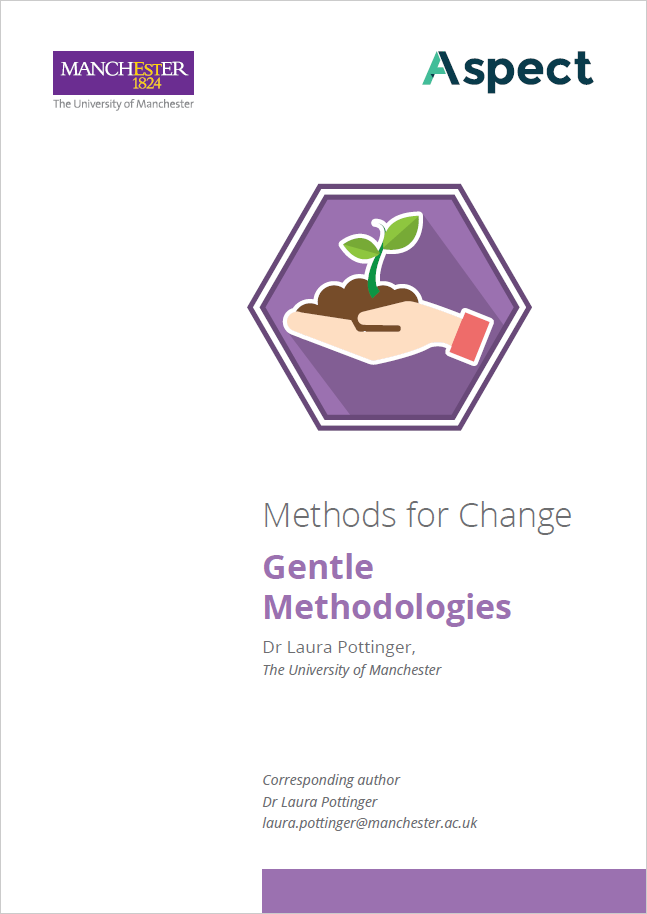Research Method: Gentle Methodologies
A Gentle Methodology offers an approach for designing research that is sensitive, collaborative, and careful, and which can attune to small-scale, mundane and non-verbal detail. Gentleness is understood as a particular orientation towards participants, materials and oneself in planning, carrying out and representing research with individuals, groups and environments. It can be useful to think about Gentle Methodologies as bringing together three key components: 1) the body; 2) pace; and 3) sharing.
As a methodology (rather than a method) this approach offers a particular way of thinking about or framing participatory and ethnographic research. Gentle Methodologies can therefore bring together an array of different methods. These are often focused on doing activities (which will vary depending on the research context) together with participants, over an extended timeframe where possible. Gentle Methodologies have an ethical commitment to treating research participants, places and materials with care, minimising disruption, and contributing in a meaningful way to the objectives and priorities of those involved in the research. They are particularly useful for shedding light on lived experience and subtle detail, and for understanding what is important to people in their everyday lives.

You can find all the research outputs from the Methods for Change series here






